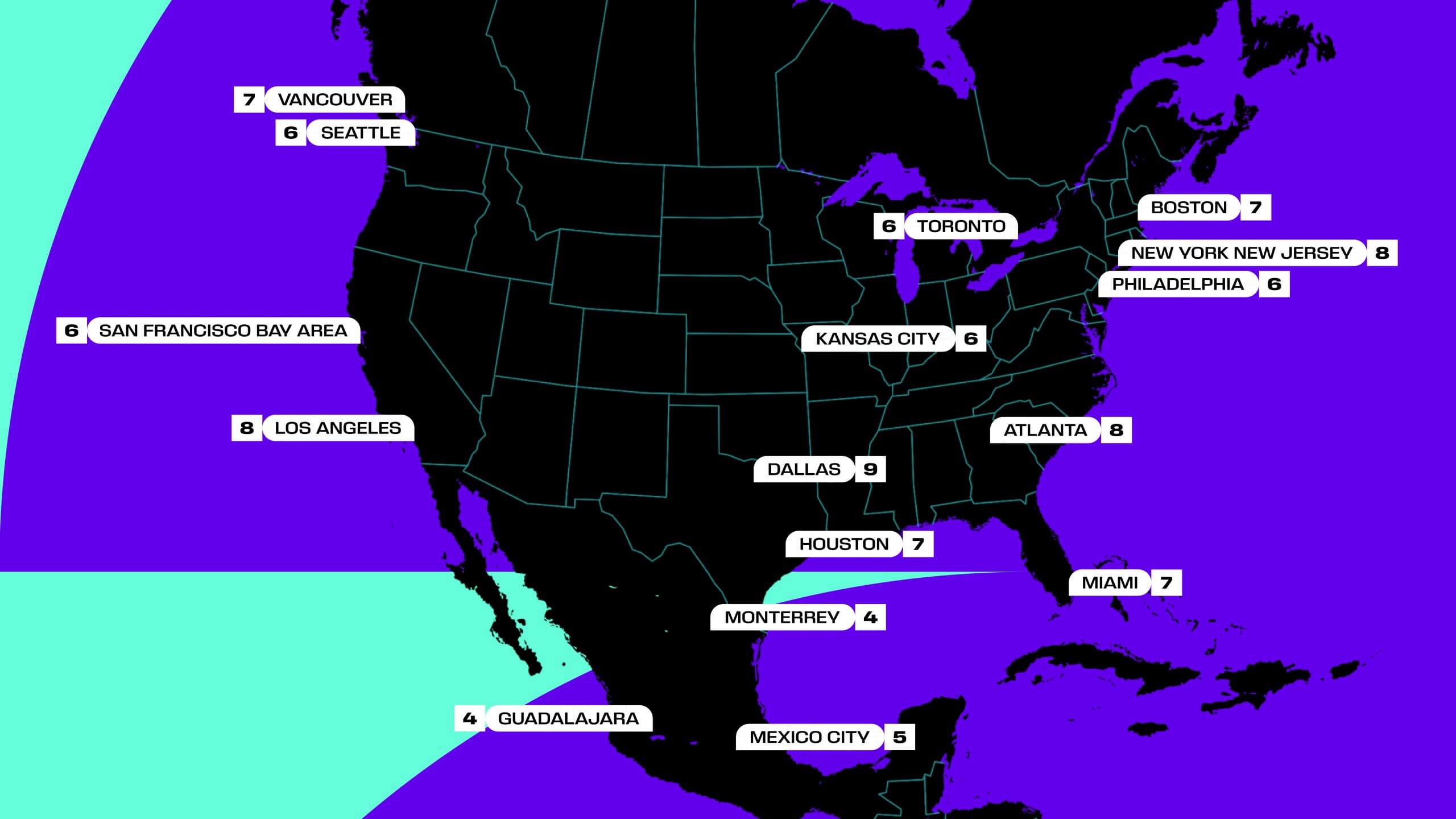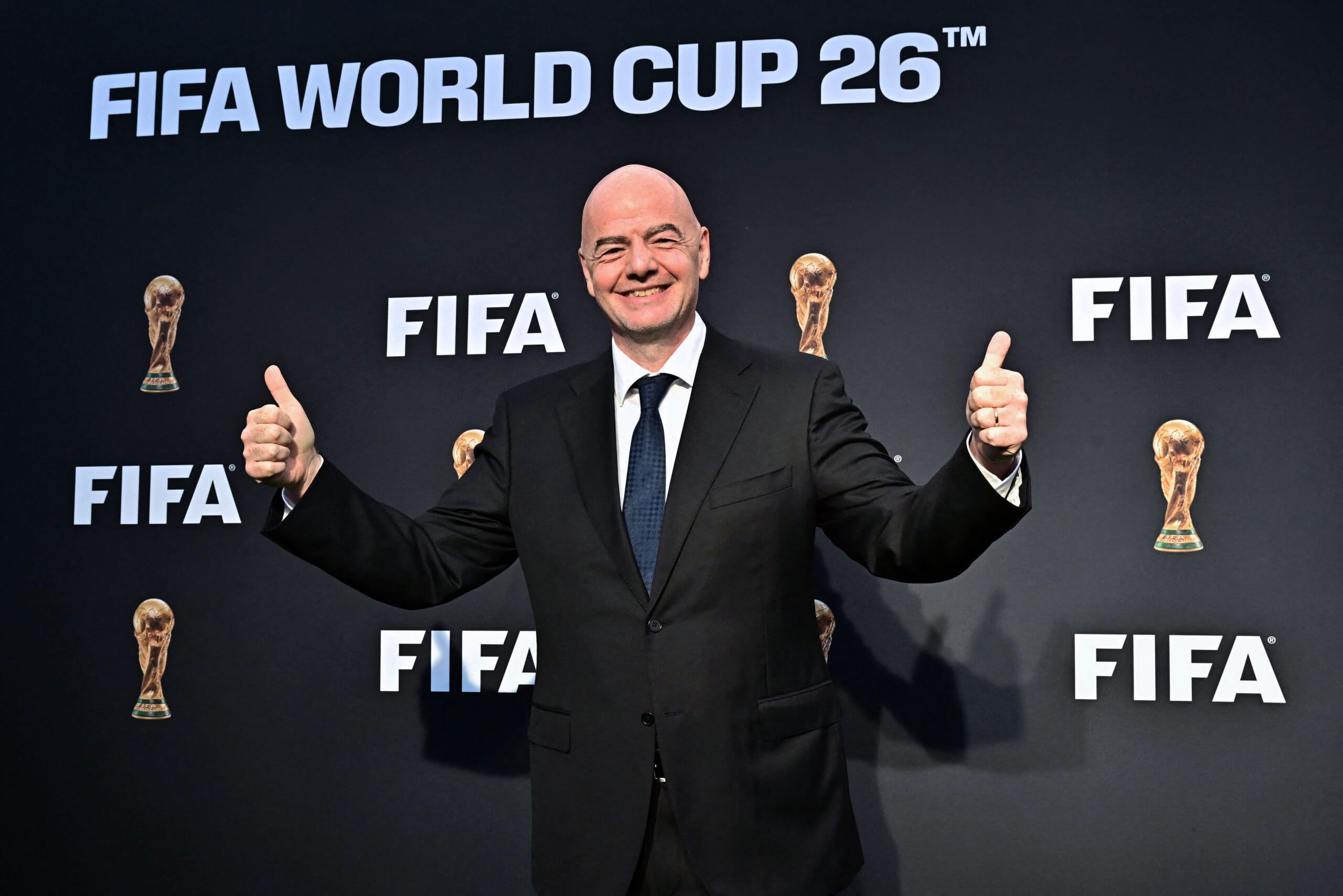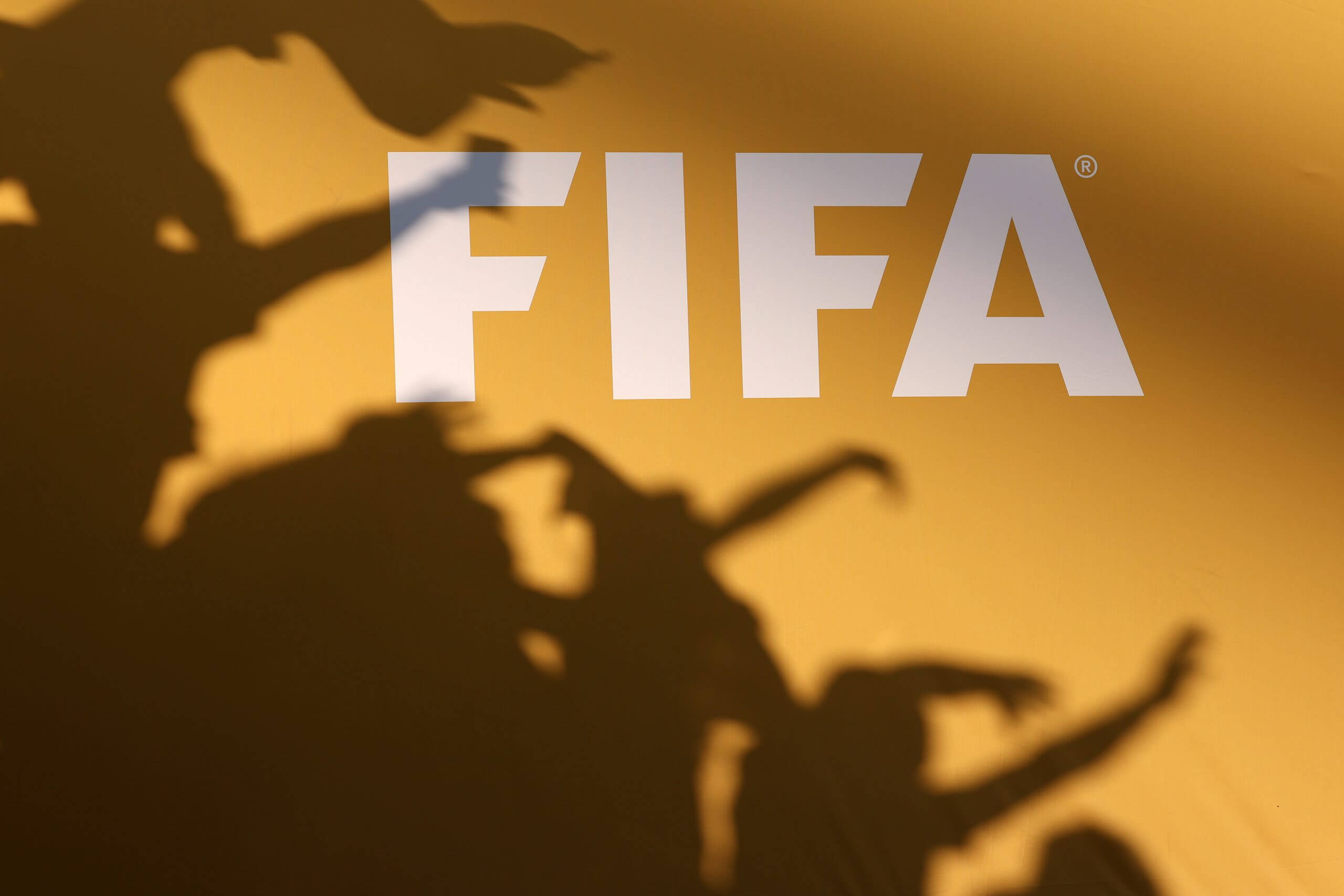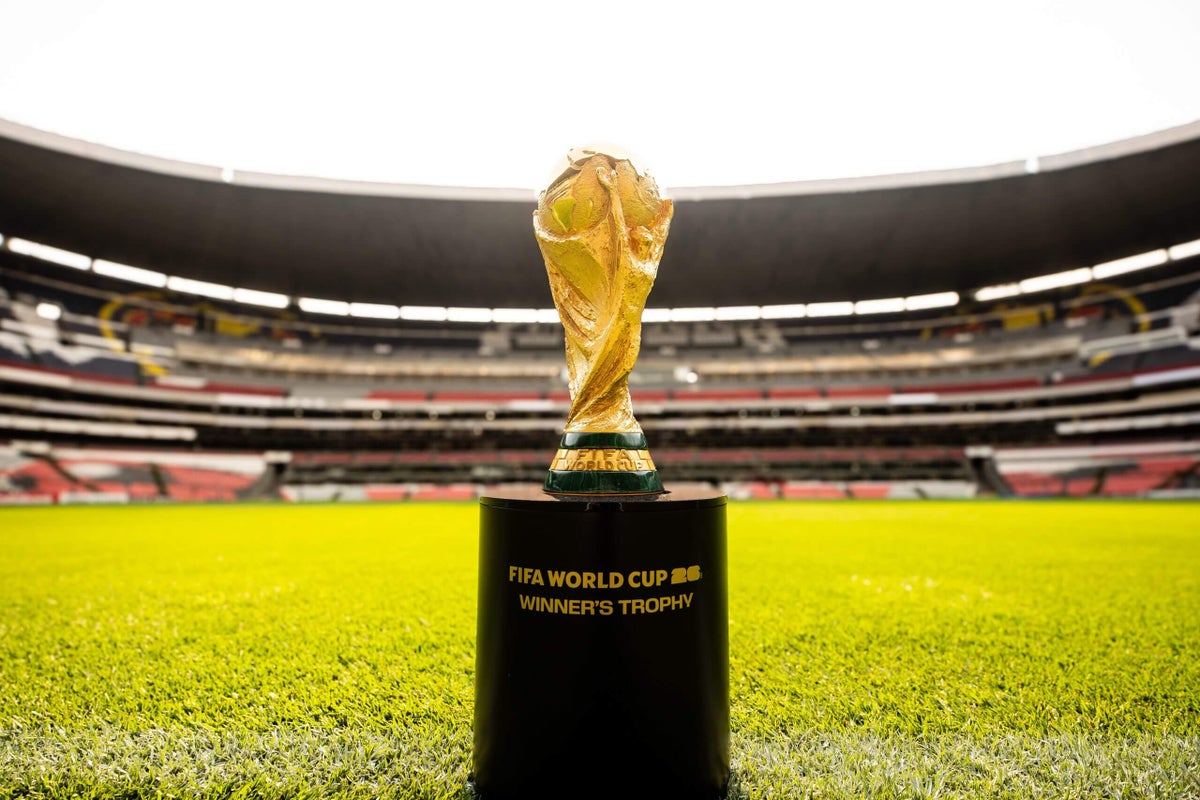FIFA has made millions of dollars selling fans the “right to buy” 2026 World Cup tickets before putting the actual tickets on sale.
Soccer’s global governing body withheld nearly all World Cup ticketing details until last week, when it announced timelines, lottery phases and some prices.
Over the past year, though, on its FIFA Collect platform, it has sold tens of thousands of digital tokens that promise buyers the ability to purchase one or two World Cup tickets at a to-be-determined later date. The tokens themselves cost hundreds of dollars. The buyers will get guaranteed access to ticket(s) for a specific match, in an unknown section, but still must pay full price for those tickets — a price that FIFA hasn’t yet set.
According to spinoff websites that track FIFA Collect sales, and according to data sent by users to The Athletic, the platform has sold over 30,000 of these so-called “Right To Buys” for a total of well over $10 million. One dataset pegged the total take related to the “RTBs” at more than $20 million. Another said they’ve yielded more than $14.3 million in direct sales, and more than $25 million including sales that might feature an RTB or could indirectly lead to one.
An exact figure is impossible to calculate, because some of the RTB tokens were bundled with tickets to 2025 Club World Cup matches or other digital collectibles, and some were obtained via promotions or as rewards. But the profits tied to RTBs very likely exceed $15 million. All sales on FIFA Collect, of the RTBs and other items, have yielded nearly $29 million on the primary market, according to the spinoff site FIFA Collect Info, whose developer told The Athletic that he built the database using publicly-available blockchain data and FIFA’s API.
The RTB tokens are essentially, and solely, a costly shortcut to 2026 tickets, allowing purchasers to bypass lotteries or first-come-first-served digital queues.
“Owning an RTB does not include the cost of the ticket(s) itself,” FIFA Collect clarifies on an FAQ page. “It only gives you access to purchase the ticket(s).”
Examples of what FIFA Collect RTBs look like for 2026 World Cup matches in Houston, Monterrey and Vancouver (Photos: FIFA Collect)
FIFA Collect: From cheap NFTs to expensive RTBs
The tokens have not always been advertised on FIFA’s main website. But FIFA Collect is the governing body’s “digital collectibles platform,” and “a collaboration between FIFA and Modex,” a blockchain service provider. It is operated by Modex but owned by FIFA. On a Discord call with users in April, a FIFA Collect administrator said: “We work in very close contact with FIFA. We’re part of FIFA. … We work in very close contact with FIFA Ticketing on everything, and also with FIFA management on everything.” All payments on the site go through the FIFA Blockchain.
And FIFA itself, in emails and on social media, has promoted the platform as a route to 2026 tickets.
“Get the right-to-buy tickets to the USA’s opening match at #WeAre26 only on @fifapluscollect!” its World Cup account said in a May 2024 Instagram post.
The subject line of a January 2025 email from FIFA read: “Unlock FIFA World Cup 26™ tickets with FIFA Collect latest drop.”
And visitors to fifa.com on Monday were greeted by a pop-up: “Will you be there when history is made? Get priority access to FIFA World Cup 26 tickets with FIFA Collect.”
When the platform launched in 2022 as “FIFA+ Collect,” FIFA promised that it would be “affordable, inclusive and accessible to all football fans.” In its early days, it served a small community of avid collectors. It sold relatively cheap packs of NFTs. It was “promoted as a trustworthy and innovative digital collectibles ecosystem backed by FIFA,” Alann Diaz, an early user, told The Athletic via email.
But in 2023, its appeal faded. In 2024, it rebounded with a new approach. First, there were “challenges” that encouraged users to buy pack after pack and try to complete an entire set of certain cards, which could be converted into a “Right To Buy” for 2026 World Cup tickets. Then, FIFA Collect began selling RTBs as single items, or within packs that were guaranteed to include one.

Host cities for the 2026 World Cup, and the number of matches at each (Photo courtesy of FIFA)
The May 2024 release was the first. There were more that fall. You could, for example, pay $699 for “a limited edition collectible that can be converted into a Right to Buy two tickets for a group phase match” at Hard Rock Stadium in Miami Gardens, Fla. The “Terms & Conditions” clarified: “Actual ticket prices and purchase process will be communicated separately. … The card does not provide free tickets; it only allows the right to purchase two tickets for the specified match.”
Then, in the spring and summer of 2025, FIFA Collect began to release new “drops” with increased frequency. In April, May and June, new batches hit the market every week. In June alone, the platform sold over 5,000 packs containing a “right to buy” one or two World Cup tickets. Prices ranged from $279 (for the right to buy tickets to a random game in Philadelphia, Atlanta or Boston) to $3,000 (for “Double Opening Glory,” a “bundle” that included the right to buy one ticket to the 2026 World Cup opener in Mexico City, plus two upper-deck tickets to the Club World Cup opener in Miami).
In April, May and June combined, according to FIFA Collect Info, users paid around $13 million on the platform’s primary market, with the vast majority of those sales tied to RTBs.
In July and August, the regular releases continued, with new batches of city-specific “Glory” packs available as recently as last week.
In addition to city-specific tokens, there were other promotions as well. There was, for example, a “Right to Final” option, where you could pick a team (say, the U.S. men’s national team), pay $999, and be guaranteed the right to purchase a ticket to the final if the USMNT makes it. (The U.S. is currently the 48th best team in the world, per the Elo Ratings, and an extreme longshot to win the World Cup.)
There were also “Road to Final Glory – Double Edition” packs. You could pay $1,499, and get an RTB for two matches randomly selected from the following supply: Round of 16 (46 RTBs), quarterfinals (20), semifinals (10), third-place match (5), final (1).
A FIFA spokesperson, when asked who was in charge of packaging and pricing the RTBs, did not directly answer most questions, but said in a statement: “By allowing fans worldwide to own digital elements of the global game and take part in initiatives that offer once-in-a-lifetime experiences, FIFA Collect is democratising access to football and making the sport available for all.
“The Right To Buy concept is central to this vision. It rewards collectors on the platform with the option of purchasing FIFA World Cup tickets from a dedicated allocation. Right To Buy is also used to test demand, identify market trends and inform fair pricing strategies, ensuring fans benefit from a more transparent ticketing process.”

FIFA president Gianni Infantino will oversee the 2026 World Cup (Photo by Frederic J. Brown/AFP/Getty Images)
‘Thousands spent, and no answers’
In each of these “Right To Buy” promotions, there was no given timeline for eventually purchasing tickets. There were no hints about how much the owner of an RTB would have to pay for the actual tickets. There was, in most or all cases, no information about the type or category of ticket that would be made available.
When FIFA Collect offered similar tokens for the “right to buy” Club World Cup tickets — which, ultimately, were widely available at reduced prices — the redemption process was “an absolute disaster,” Jon Heath, a FIFA Collect user, wrote in an email. RTB holders complained that they were only allowed to purchase Category 1 tickets, the most expensive tickets, despite FIFA Collect telling them in a December 2024 email that “tickets will be available across different categories, providing options to suit various preferences and needs.” (FIFA Collect administrators, on the April Discord call, apologized and explained that they’d gone back on their word due to “updated guidance from FIFA Ticketing.” FIFA, when asked why this happened, did not say.)
In Discord channels where avid collectors interact with the admins, there were flurries of frustrated messages, and questions that the admins said they couldn’t definitively answer.
“This isn’t just about RTB conversion,” one user wrote to moderators. “This is about a pattern of vague answers, shifting promises, and last minute shocks that keeps repeating.”
Many Club World Cup RTB buyers ended up paying more to get their tickets than they would have if they’d waited and gone straight to Ticketmaster on the eve of the tournament.
Some also worried about what these concerns portended for the following year. One wrote on Discord: “What makes us think we won’t get the same issue for WC 26???”
Blok, a user who spoke on the condition that he be identified only by his online alias, told The Athletic: “A lot of people felt burnt on [Club World Cup]. And my biggest fear is they’re going to do the same thing with the World Cup, where the prices are astronomical and the Right To Buy tickets are literally worthless.”
Last Wednesday, when FIFA released some basic ticketing details without mention of RTB holders, hundreds of anxious messages flooded the Discord channel. “It’s ridiculous how little we know,” one user wrote. “[Thousands of dollars] spent, and no answers.”

(Photo by Luke Hales/Getty Images)
Where the money goes
The increasingly frequent releases of World Cup RTBs also seemed to be “attracting scalpers and resellers into the ecosystem,” Diaz, the longtime user, wrote to The Athletic. He pointed to FIFA Collect accounts holding over 100 RTBs in total. Those RTBs could be converted to tickets, which could then be re-sold for profit; or, the RTBs themselves could be resold on the FIFA Collect “marketplace,” essentially an internal secondary market, where users sell to and buy from one another. (Modex takes a 5% fee from those secondary-market sales, per FIFA Collect’s terms of service.)
In interviews with The Athletic, multiple users confidently stated that a significant majority of people now on the platform had come specifically for RTBs. Demand seemed especially strong in Mexico, prompting FIFA Collect to hike prices for potential access to Mexican national team games. Earlier this summer, the “right to buy” two tickets to El Tri’s match in Guadalajara went for $2,799, then $2,999. (Modex executives did not respond to emails seeking clarity on how prices were determined and other topics.)
Other listings played up the possibility of El Tri’s potential appearance. For example, within the description of a $449 “City Glory: Miami” pack, there was a bold-lettered paragraph: “In this pack you may find an RTB for 1 of 5 different random matches, including M99, a Quarter-final match that could be played by the Mexico national team depending on its path in the tournament.”
Multiple users told The Athletic that FIFA Collect had been “targeting” and “taking advantage of the Mexican community.”
It’s unclear what percentage of the revenue from these sales has gone directly to FIFA, as opposed to Modex or to charity. In mid-July, new packs began including a note that said “20% of all proceeds” would go to the FIFA Global Citizen Education Fund and “help provide education access to the world’s most marginalized children, build safe learning environments, and accelerate progress toward every child’s right to quality education across more than 200 countries.” FIFA Collect’s website says that $1.4 million has so far been raised for the fund.
A FIFA spokesperson, when asked about revenue breakdowns, wrote that the governing body “does not disclose the specifics of commercial and financial agreements or strategies.”
But he did say: “As with all of FIFA’s commercial activities, revenues go directly back into football development and social projects worldwide, with Modex taking a commission to scale operations and cover technical costs. FIFA Collect therefore provides life-changing opportunities for fans, new digital ecosystems for stakeholders, and additional revenue to grow the game globally.”
Whatever FIFA’s cut, it represents a small fraction of the more than $3 billion that FIFA expects to make in 2026 from hospitality and ticket sales.
The roughly 70,000 tickets that have been promised via RTBs (according to FIFA Collect Info) represent around 1% of the roughly 6 million tickets FIFA expects to sell for the 2026 World Cup’s 104 matches.
(Top photo: FIFA)
